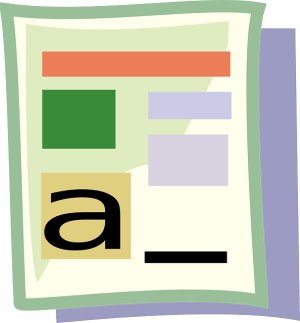In the dynamic UK HR sector, professional translation services are indispensable for accurate communication, ensuring contracts, policies, and handbooks are legally sound and culturally sensitive. These services overcome jargon, employment laws, and cultural variations, fostering inclusive workplaces and avoiding non-compliance issues. With global business expansion, advanced technologies like AI and machine translation streamline processes, offering secure, high-quality UK HR documents translation tailored to diverse linguistic backgrounds. Case studies prove their effectiveness, enabling organizations to avoid legal pitfalls and promote inclusive cultures worldwide. Future advancements in technology will further enhance accessibility and efficiency in this critical service area.
In today’s globalized workforce, accurate and professional translation services are indispensable for UK Human Resources (HR) documentation. This article delves into the critical importance of precise translation in HR materials, exploring challenges across languages and the pivotal role of expert providers. We examine key considerations when selecting an HR translation service, highlight advancements in technology enhancing quality, and present case studies of successful translations in complex scenarios. Additionally, we look at future trends shaping UK HR documents translation services.
- Understanding the Importance of Accurate Translation in UK HR Documentation
- Challenges in Translating Human Resources Materials Across Languages
- The Role of Professional Translation Services in Ensuring Compliance
- Key Considerations When Choosing an HR Translation Provider
- How Advanced Technologies Enhance HR Document Translation Quality
- Case Studies: Successful Translations in Complex HR Scenarios
- Future Trends in UK Human Resources Documents Translation Services
Understanding the Importance of Accurate Translation in UK HR Documentation

In the dynamic landscape of UK Human Resources (HR), where precision and compliance are paramount, accurate translation services play a pivotal role in ensuring fairness and consistency across diverse workforces. The importance of professional translation cannot be overstated, especially when dealing with critical HR documentation such as contracts, policies, and employee handbooks. These documents not only outline legal rights and responsibilities but also shape the employer-employee relationship, making clear and concise communication essential.
Translation services that specialise in UK HR documentation ensure that cultural nuances are respected while legal terminology is conveyed accurately across languages. This is crucial for avoiding misinterpretations that could lead to disputes or non-compliance with local employment laws. By leveraging expert translators who possess both linguistic proficiency and domain knowledge, organisations can guarantee that their HR materials resonate effectively with employees from various linguistic backgrounds, fostering a more inclusive and productive work environment.
Challenges in Translating Human Resources Materials Across Languages

Translating UK Human Resources (HR) documents accurately and effectively across different languages presents several unique challenges. One of the primary hurdles is the need to convey complex HR concepts, policies, and procedures in a way that maintains legal validity and compliance while being culturally sensitive. Each language has its nuances and idiomatic expressions, making it difficult to find precise equivalents for terms like “probationary period” or “discretionary bonus.” Professional translators must possess not just linguistic skills but also a deep understanding of employment laws and practices in the target countries.
Additionally, HR documentation often involves technical jargon and specialized terminology specific to various industries. Ensuring consistent translation of these terms is crucial for clear communication. Translators must carefully study industry-specific glossaries and consult with domain experts to avoid ambiguity or misinterpretation. Furthermore, cultural differences in employment norms, benefits, and compensation structures necessitate careful adaptation to ensure the translated materials remain relevant and effective in different linguistic and cultural contexts, thereby enhancing the overall UK HR documents translation services.
The Role of Professional Translation Services in Ensuring Compliance

In the dynamic landscape of global business, UK Human Resources (HR) departments face a unique challenge—managing diverse talent pools and ensuring compliance across multiple jurisdictions. Professional translation services play a pivotal role in overcoming language barriers and guaranteeing that HR documents accurately convey critical information to employees worldwide.
These specialized services go beyond simple word-for-word translations. They involve cultural expertise, ensuring that document localization is both precise and sensitive to regional nuances. Whether it’s contracts, policy statements, or employee handbooks, professional translators meticulously adapt content to meet legal and cultural requirements. By enlisting these services, UK HR professionals can mitigate risks associated with non-compliance, foster inclusive workplaces, and create a seamless experience for employees from diverse linguistic backgrounds.
Key Considerations When Choosing an HR Translation Provider

When selecting a professional translation service for UK Human Resources documents, several key considerations come into play. First and foremost, ensure the provider has extensive experience in handling HR-specific content. This expertise translates to a deep understanding of industry jargon, legal terminology, and cultural nuances essential for accurate translations. Look for companies that offer native translator services, guaranteeing fluency and contextually appropriate language use.
Additionally, verify their quality assurance processes. Reputable providers adhere to rigorous standards, employing advanced translation memory software and performing thorough proofreading. These measures ensure consistency, minimize errors, and maintain the integrity of your HR documents. Security is another vital aspect; sensitive information requires secure handling and storage, so check for data protection protocols and non-disclosure agreements.
How Advanced Technologies Enhance HR Document Translation Quality

In today’s globalised business environment, advanced technologies play a pivotal role in enhancing the quality of HR document translation services in the UK. Machine translation tools, powered by artificial intelligence, have evolved significantly, offering more accurate and contextually relevant translations than ever before. These tools can swiftly analyse complex HR terminology, ensuring consistency across diverse languages.
Additionally, post-editing technologies allow for a seamless blend of human expertise and machine efficiency. Professional translators can review and refine machine-translated content, catching nuances, cultural subtleties, and ensuring the final document reads naturally in the target language. This hybrid approach maximises accuracy, speeds up turnaround times, and delivers high-quality UK Human Resources Documents translation services.
Case Studies: Successful Translations in Complex HR Scenarios

When it comes to complex HR scenarios, professional translation services play a pivotal role in ensuring accurate communication and compliance. Case studies highlight successful translations of UK Human Resources documents, demonstrating the expertise needed to navigate legal nuances and cultural differences. For instance, consider a multinational corporation expanding into the UK, requiring translations of employee contracts, policy manuals, and diversity training materials. A reputable translation service would not only translate these documents but also ensure they adhere to UK employment laws and best practices.
These services employ linguists with specific HR expertise, who understand technical terminology and regulatory requirements. They use advanced tools for consistency and quality assurance, ensuring the translated documents are as effective as the originals. By leveraging such services, organizations can avoid legal pitfalls, streamline onboarding processes, and foster a more inclusive workplace culture, demonstrating the value of professional translation in complex HR scenarios.
Future Trends in UK Human Resources Documents Translation Services

The future of UK Human Resources (HR) documents translation services is poised for significant evolution, driven by technological advancements and a growing need for global accessibility. Artificial Intelligence (AI) and Machine Translation (MT) are set to play pivotal roles in this transformation. AI-powered tools can enhance efficiency by automating repetitive tasks, reducing human error, and enabling faster turnaround times. Advanced MT systems, trained on vast HR-specific datasets, promise more accurate and contextually appropriate translations.
These innovations will empower translation service providers to offer personalized, high-quality solutions tailored to the nuances of HR documentation. With increased demand for diverse language support, UK-based businesses can effectively reach and engage international talent pools, ensuring compliance with local employment laws and fostering a globally inclusive workplace culture.
Professional translation services are indispensable for navigating the complex landscape of UK Human Resources documents. By addressing challenges, ensuring compliance, and leveraging advanced technologies, these services play a pivotal role in fostering inclusive workplaces. When choosing a provider, consider key factors to secure accurate, culturally sensitive translations that align with evolving legal requirements. Ultimately, investing in top-tier UK Human Resources Documents translation services is a game-changer for organizations seeking to thrive in a diverse and dynamic workforce.
